IWM 14-18 NOW Legacy Fund Artist
Khaled Hafez
The Harris is delighted to work with Khaled Hafez, who was selected for the highly anticipated commission supported by the IWM 14-18 NOW Legacy Fund. Khaled Hafez is an internationally renowned Egyptian artist who is the creative force behind a new artwork that features on the Harris’ main staircase. This collaboration marks an exciting milestone in our ongoing commitment to engaging audiences with thought-provoking art that explores the intersection of history, culture, and identity.
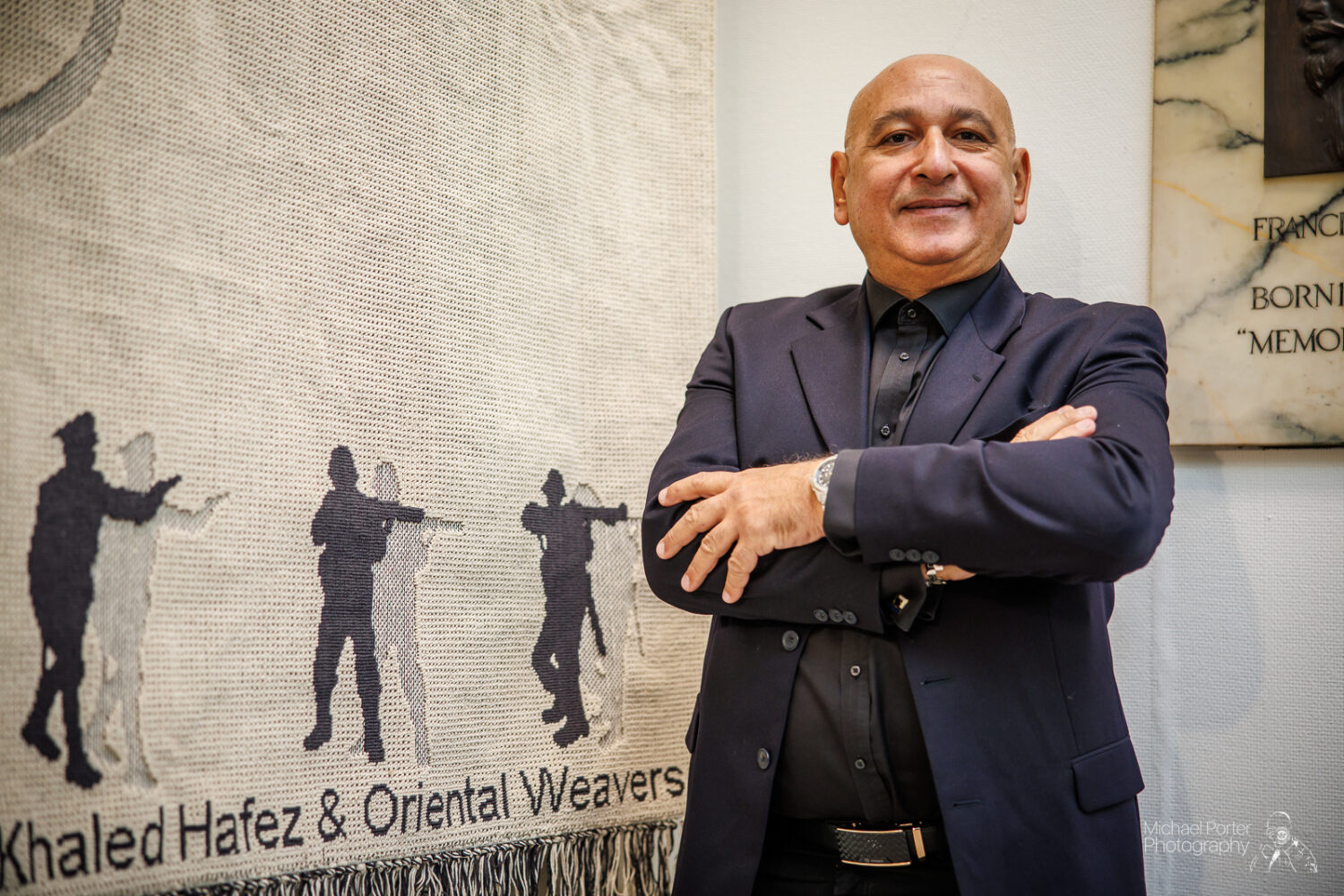
In 1908, The Harris commissioned artist John Somerscales to create one of the most unique features of the building, the Egyptian Balcony . A series of painted murals inspired by a research trip to Egypt, which includes key historical sites and interpretations of ancient tomb paintings – the organisations first art commission.
Remarkably, the relationship between Preston and Egypt had been little explored, despite representations of this country being at the very heart of the building. This new display considers why there are Egyptian artefacts in the collection, the motivations behind the creation of the Egyptian Balcony, and Egypt as a crucial supplier of cotton to Lancashire’s textile mills. Considering the British Empire, its interests in Egypt and Britain’s occupation of Egypt until the 1950s.
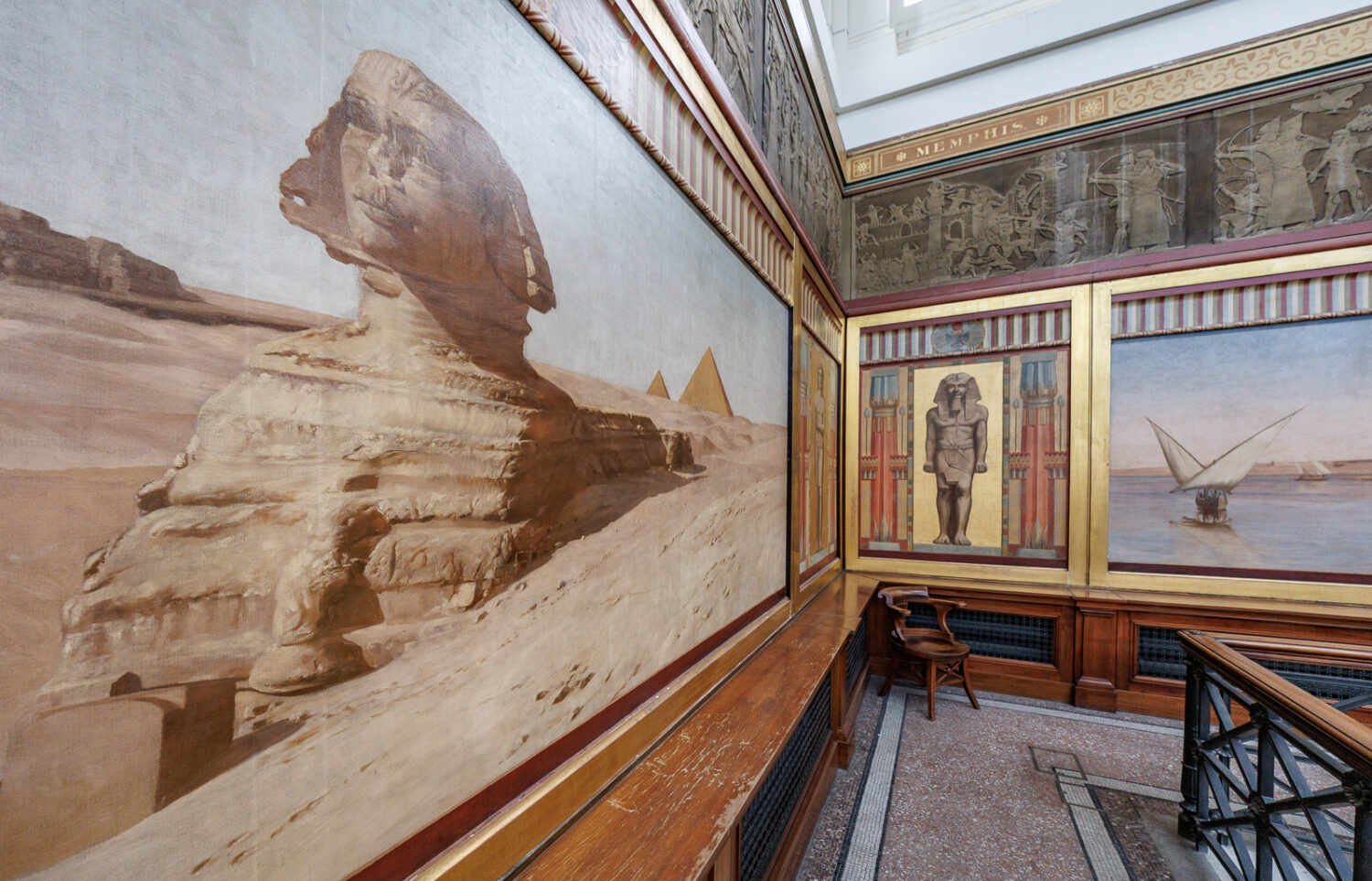
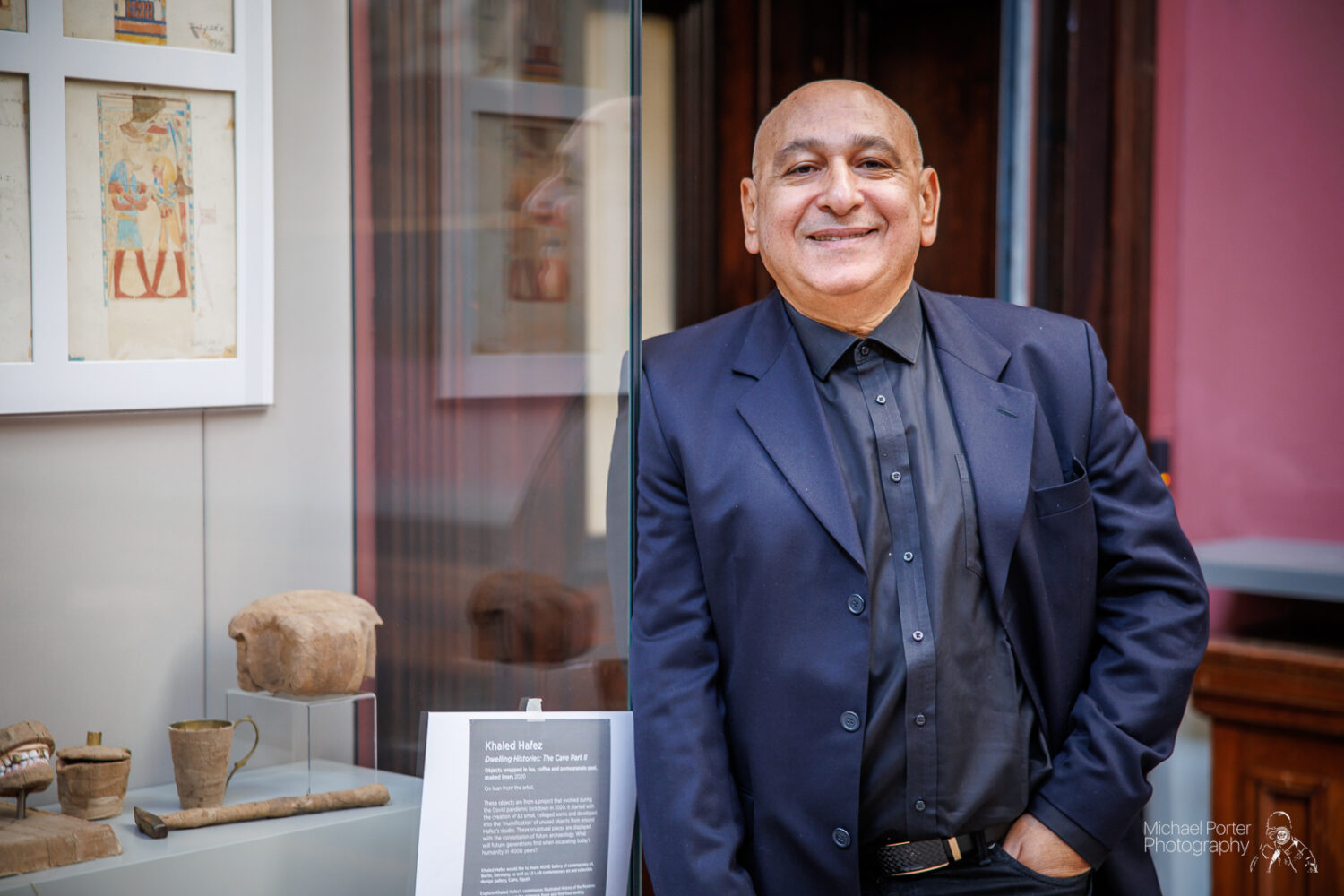
Illustrated History of the Mundane: Dwelling Histories
This new commission explores histories that connect Egypt and the UK, including little-known stories told through the lived experiences of Khaled’s family, beginning with the resistance itinerary of his grandfather Hafez Donia, who attempted a separatist movement in 1919 that sustained for 100 days.
Khaled’s installation includes a film, and a frieze that winds up the staircase from the ground to the first floor. The first-floor landing display comprising a series of screen prints of family members who witnessed the revolts of 1919 and two hanging textiles, and the Egypt case on the second-floor balcony.
The project considers the impact British occupation had on Egypt during the 1900s, in particular the establishment of a ‘veiled protectorate’ in 1914, the Egyptian Revolution of 1919 which led to independence in 1922, and the eventual withdrawal of British troops in 1956. Hafez’s commission reflects on these histories of conflict and the significance of Egyptian cotton on Britain’s textile industry.
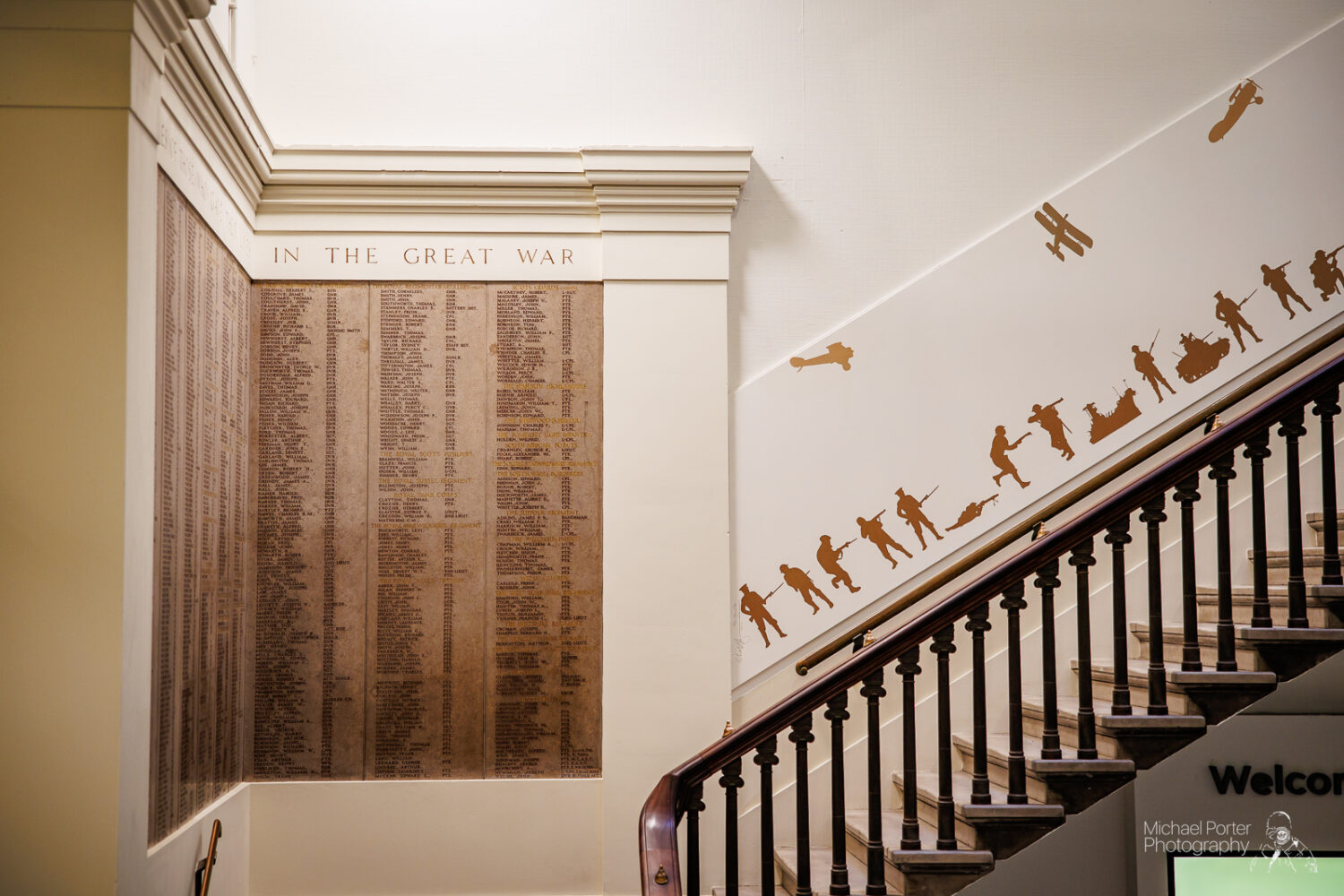
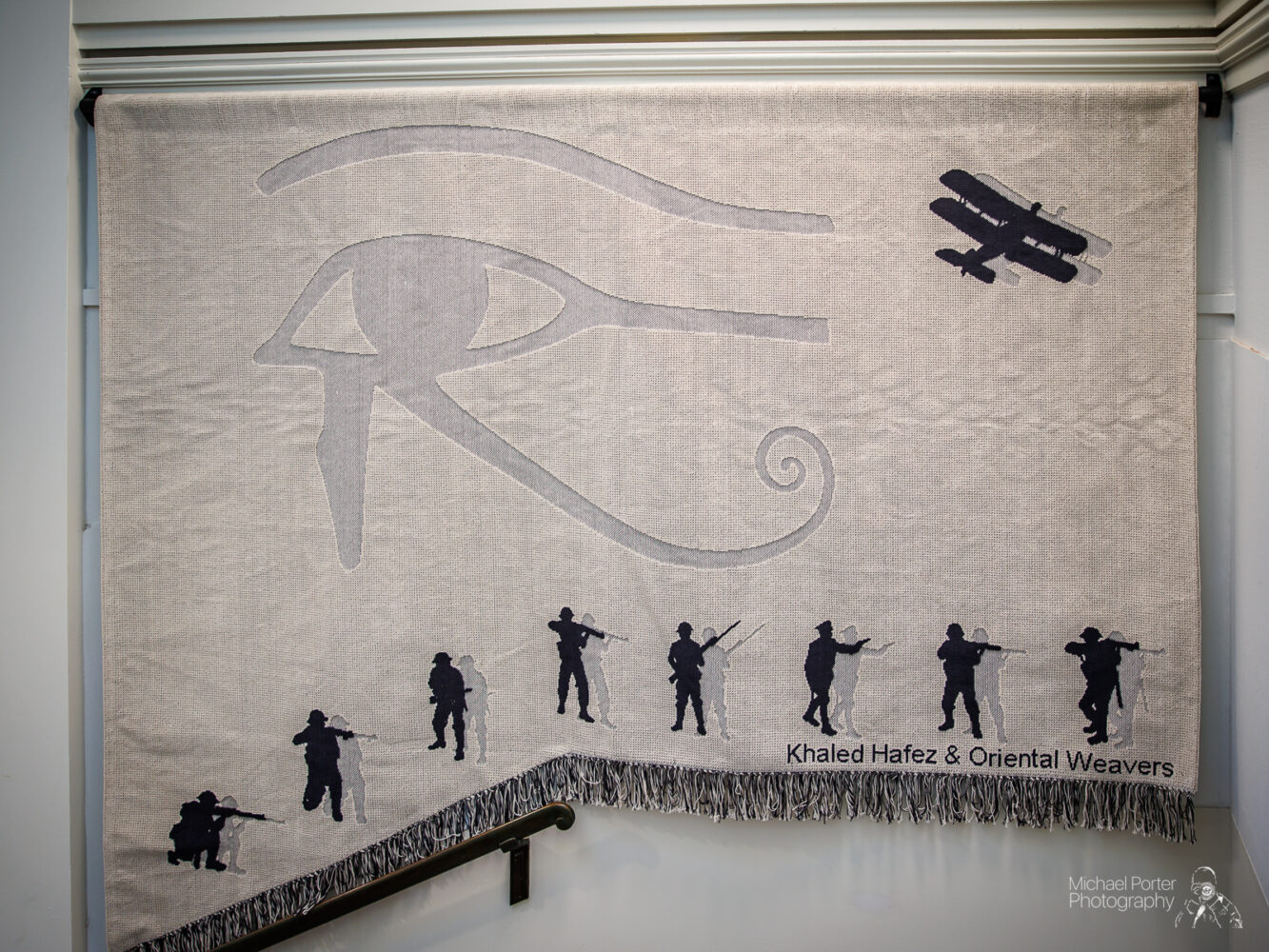
Watch Khaled’s In Conversation With from Thursday, 9 October 2025: